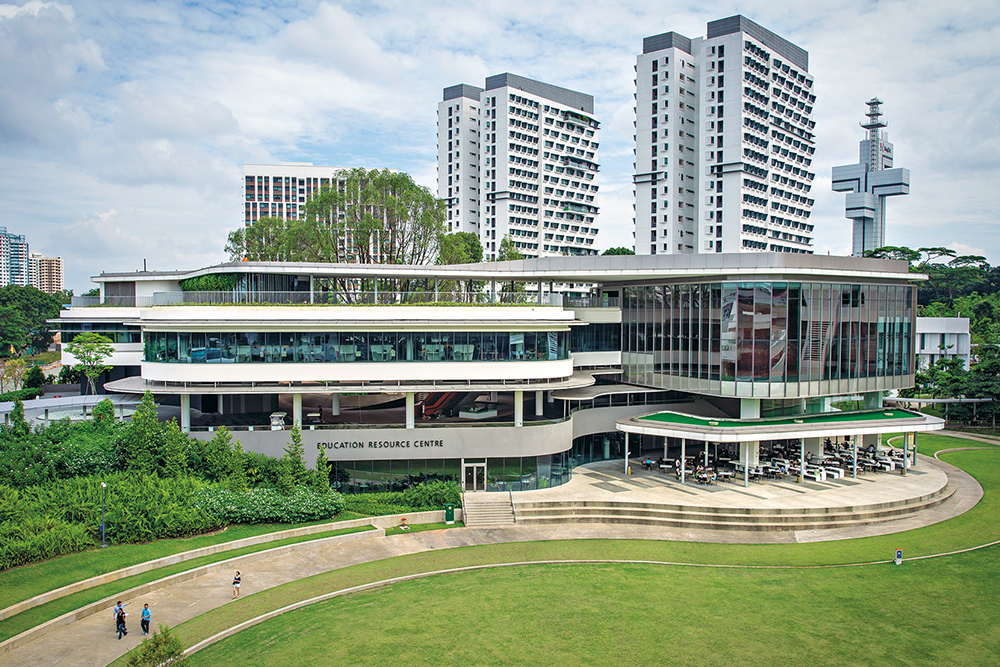Exploring the Chinese language and culture beyond mainland China presents distinctive opportunities and insights. In nations like Malaysia and Singapore, the extensive history of overseas Chinese communities has fostered a dynamic fusion of Chinese and Southeast Asian cultural elements. Many overseas Chinese communities maintain their traditional languages, such as Hokkien or Cantonese, alongside Mandarin. Therefore, opting to study in these locations can enhance your prospects of learning non-Mandarin Chinese languages.
Beyond Asia, the worldwide Chinese diaspora and Chinese-speaking community have actively opened avenues for students to engage with the Chinese language, extending even to distant places like the United States! In this blog, we will look into learning Chinese in Singapore.
This Blog Includes:
Why Learn Chinese in Singapore?
Learning Chinese in Singapore presents a unique and compelling set of advantages that make it an excellent choice for language enthusiasts. Here are several reasons why you should consider learning Chinese in Singapore:
Multicultural Environment: Singapore is renowned for its multicultural society, where various ethnic groups, including the Chinese, Malay, Indian, and Eurasian communities, coexist harmoniously. This diverse environment provides a rich backdrop for learning Chinese, offering exposure to different dialects, traditions, and cultural nuances.
Integration into Daily Life: The practical application of the Chinese language is seamlessly integrated into daily life in Singapore. From street signs and public transportation announcements to daily conversations in markets and restaurants, the constant exposure to Mandarin facilitates a natural and immersive learning experience.
University Programs: Singaporean universities often offer well-designed Chinese language programs as part of their academic curriculum. As an international student, you can enrol in these programs, combining language learning with your academic pursuits.
Gateway to Southeast Asia: Situated strategically in Southeast Asia, Singapore serves as a gateway to the region. Learning Chinese in Singapore not only provides access to the Chinese-speaking world but also opens doors to opportunities in neighbouring countries with significant Chinese communities.
Also Read: Masters In Singapore: All You Need To Know
Educational Institutions in Singapore Offering Chinese Language Programs
If you plan to study Chinese at one of Singapore’s universities, we’ve listed some of the best options below. The universities are some of the most prestigious, not only in Singapore but in the world.
National University of Singapore (NUS)

Established in 1905, the National University of Singapore (NUS) stands as the oldest autonomous university in the country. As per the 2020 QS World University Rankings, NUS holds the distinction of being the top university in the Asia Pacific region and ranks 11th globally, underscoring its esteemed reputation. In the QS World University Rankings 2025, the university has ranked #8, reaffirming its excellence. Boasting a diverse student body of approximately 36,000, NUS is recognized as one of the most international universities worldwide.
Despite its global standing, it’s important to note that NUS does not provide standalone courses in the Chinese language. Instead, prospective students interested in Chinese studies can consider enrolling in one of its undergraduate programs, such as:
- Bachelor of Arts
- Bachelor of Arts (Honours) in Chinese Studies
- Minor in Chinese Language
Given its prestigious status, NUS sets rigorous admission criteria, surpassing those of many Chinese institutions. For non-native English speakers, submission of TOEFL or IELTS scores is mandatory, with minimum requirements as follows:
- TOEFL: 85 for the internet-based test (with a minimum writing section score of 22), 580 for the paper-based test, or 237 for the computer-based test.
- IELTS: A score of 6.0 is accepted.
It’s noteworthy that tuition fees for students without subsidized rates amount to 36,800 SGD (26,666 USD) per year, placing NUS in the higher price segment. In comparison, students in China typically incur lower costs, paying as little as 10,000 RMB (1,428 USD) per semester for courses rather than full-fledged undergraduate programs.
Nanyang Technological University (NTU)

NTU stands as a global powerhouse in engineering disciplines and was established in 1981, making it the second-largest university with an enrollment of approximately 33,000 students. Alongside NUS, Nanyang Technological University jointly secured the 11th position in the prestigious 2020 QS World University Rankings, solidifying its status as a premier institution in the Asia Pacific region. In the QS World University Rankings 2025, the university has ranked #15, demonstrating its eminence.
The main colleges and institutes within NTU encompass a diverse range of fields, including the Nanyang Business School, College of Humanities, Arts, and Social Sciences, College of Engineering, College of Science, Lee Kong Chian School of Medicine, Interdisciplinary Graduate School, and Autonomous Institutes.
Distinguishing itself from NUS, NTU offers a unique advantage by providing a daily Chinese language – HSK program. Successful completion of the course earns participants a Certificate of Attainment, contingent upon meeting specific criteria:
1. Maintain an attendance rate of at least 70%.
2. Pass post-course tests within stipulated deadlines.
3. Participate in post-course surveys.
Participants with a minimum 50% attendance rate per course, without meeting the other criteria, receive a Certificate of Participation. The course is structured into three classes: Basic, Intermediate, and Advanced.
In terms of tuition fees, the program comprises 14 levels, each consisting of 30 hours and 10 lessons, with costs ranging between 600 – 640 SGD (435 – 463 USD) per level. This proves significantly more cost-effective than NUS, with the total expense for all levels amounting to approximately 8,700 SGD (6,300 USD).
NTU extends its language offerings beyond the HSK program, encompassing additional Chinese language courses such as the Chinese Phonetics (Hanyu Pinyin) Programme, Professional Chinese in Finance and Accounting Programme, and the Business Chinese Programme.
Also Read: Singapore Student Visa
Career Opportunities
Singapore, not only the financial hub of Southeast Asia but also a trailblazer in the technology industry, presents a myriad of career prospects. With its advanced technological development surpassing that of many nations, the city-state is a fertile ground for diverse professional opportunities.
Considering a future career in Singapore? Embarking on your journey by studying Chinese can serve as an excellent starting point. Whether you plan to further your education or explore job opportunities, immersing yourself in the local language can be a strategic move. Perhaps you’ll find yourself in Singapore as part of a family or partnership. If the prospect of studying Chinese beckons, don’t hesitate to enrol in a local school and pave the way for a rewarding linguistic and professional journey.

FAQs
Ans: If you’re considering acquiring proficiency in a Chinese language during your stay, Mandarin would be the most advantageous. Alongside English, Malay, and Tamil, Mandarin holds the status of one of Singapore’s four official languages. Mandarin is taught in schools to Singaporean Chinese, rendering it the most widely spoken variant of Chinese in the country.
Ans: With the correct study techniques and a positive mindset, significant strides in learning Chinese can be achieved in this relatively short timeframe. If your main objective is to engage in Mandarin conversations, it’s feasible to reach this goal, even if you’re starting from scratch.
Ans: Chinese is highly prevalent in Singapore, with Chinese Singaporeans comprising 75.9% of the citizen population, as reported by the official census. This demographic makes the Chinese ethnic group the largest in Singapore. The cultural significance of Chinese activities, such as playing Chinese chess (Xiangqi) in Chinatown, reflects the community’s substantial influence in the country.
Related Reads:
So, this was all about learning Chinese in Singapore. Many Indian students dream of pursuing education in foreign nations due to the exposure and career growth they offer. Lastly, consider joining a free counselling session with Leverage Edu if you plan to study abroad.
 One app for all your study abroad needs
One app for all your study abroad needs
















 45,000+ students realised their study abroad dream with us. Take the first step today.
45,000+ students realised their study abroad dream with us. Take the first step today.